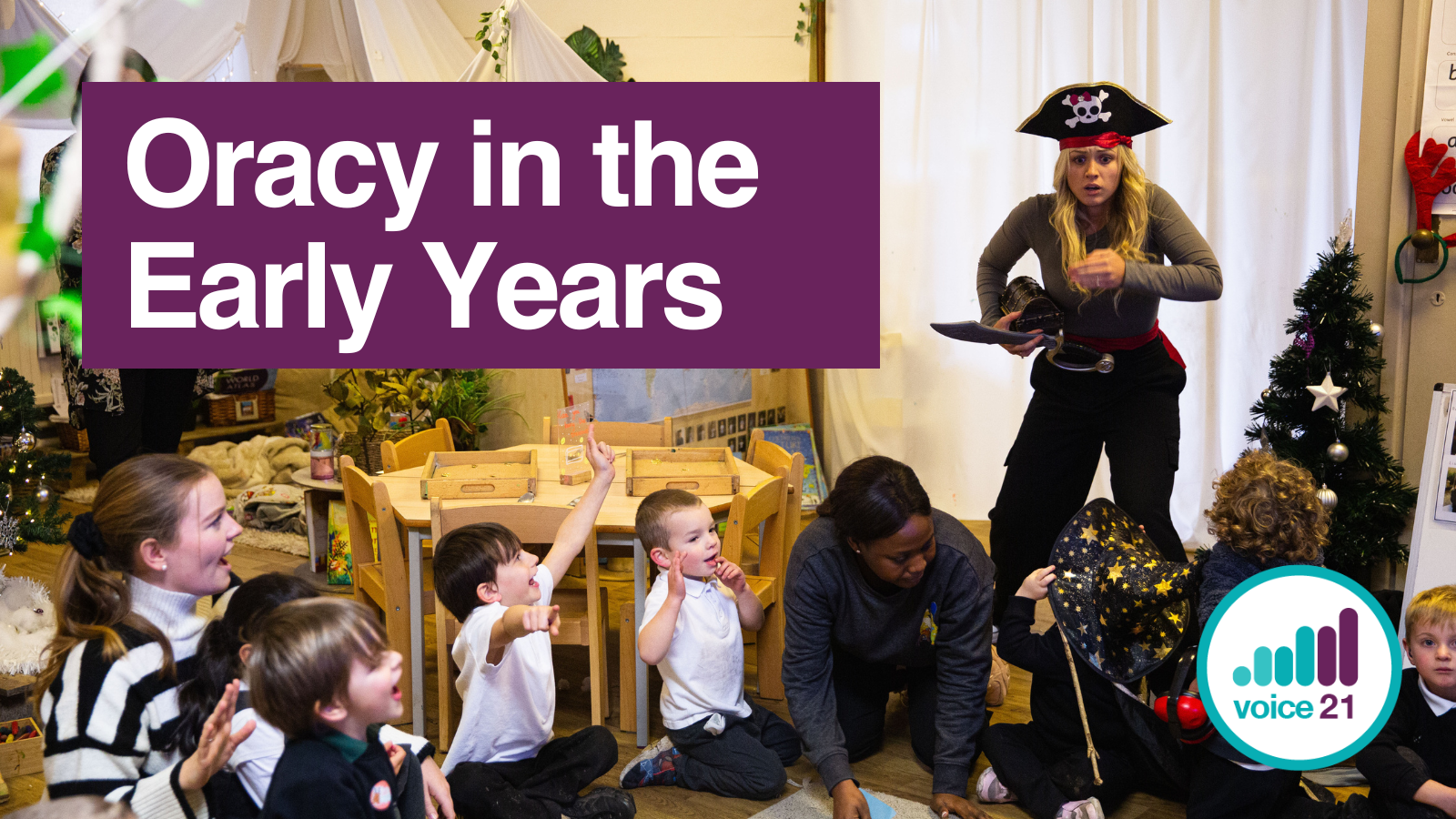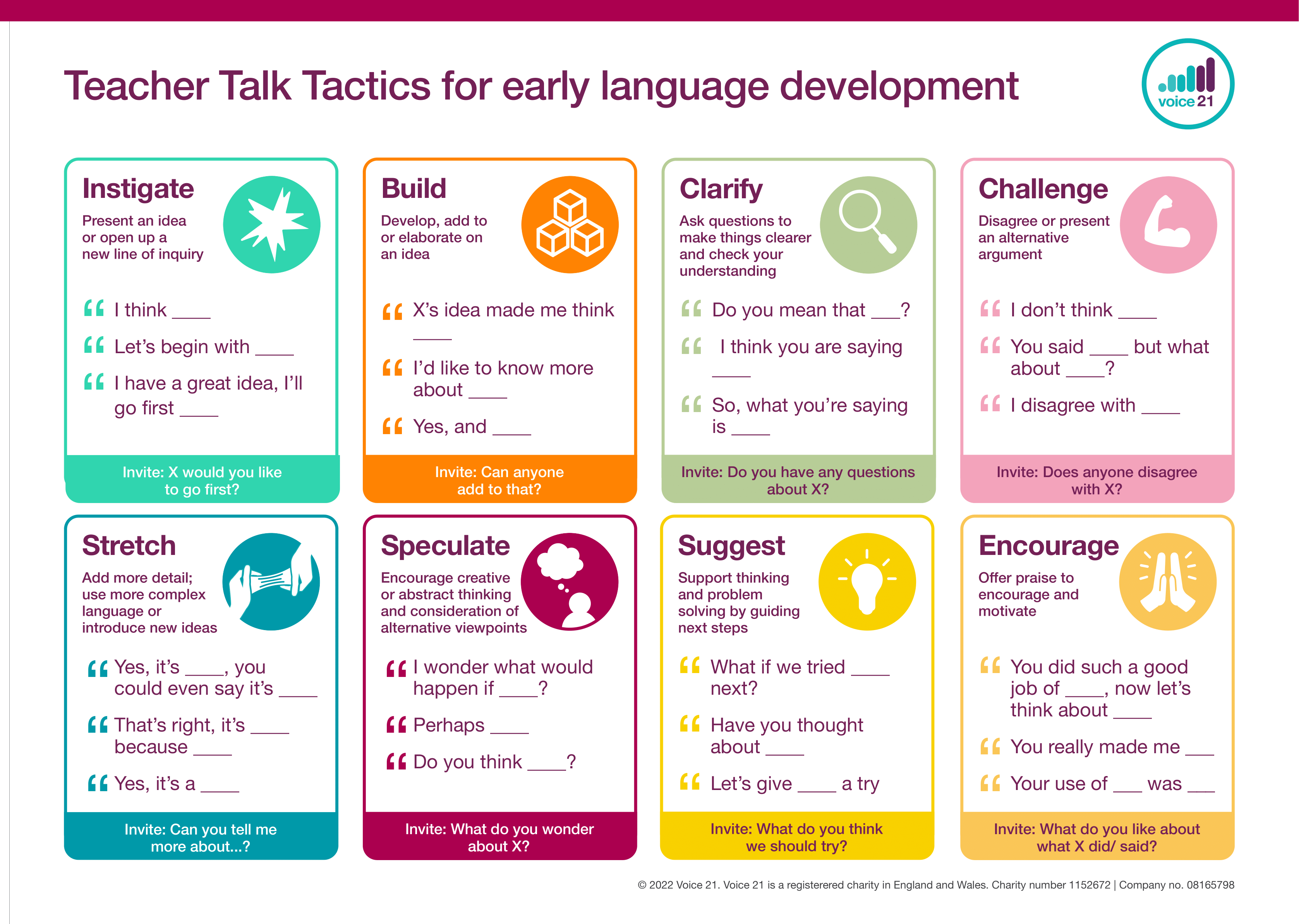
To celebrate National Early Years Teacher Day 2025, we’re highlighting the importance of oracy in the Early Years and sharing thoughtful examples of how schools are nurturing talk and language at this crucial stage of learning
The need for high-quality oracy provision in the Early Years Foundation Stage is more important than ever. An explicit and deliberate focus on developing children’s oracy skills, including teaching and modelling language, vocabulary, and social communication skills and creating thoughtful opportunities for collaborative talk can set children up for success through the rest of their schooling.
While all children benefit from opportunities to learn to and through talk, listening and communication in the Early Years, some studies suggest these opportunities are particularly beneficial to children from socio-economically disadvantaged backgrounds.
Here are a few ways that you can support your youngest learners through high-quality oracy provision.
Make every conversation count
The Early Years classroom is full of opportunities for meaningful talk — from spontaneous conversations during continuous provision to more structured moments like circle time and story time. These interactions play a vital role in children’s language development and understanding of the world around them.
One approach which makes the most of these moments is Sustained Shared Thinking. This strategy involves adults and children working together in conversation to explore ideas, solve problems, and make connections. Through thoughtful questioning, encouragement, and speculative talk, practitioners help children develop their thinking.
At Crab Lane Primary School, a Voice 21 Oracy Centre of Excellence in Manchester, this approach is embedded across the Early Years setting. Staff receive targeted professional development to ensure a consistent, high-quality approach to talk in this phase. As children move through different areas of continuous provision, adults support and extend their learning through purposeful interactions which engage children in meaningful dialogue.
“If we get it right here, that will set children up for their whole time with us at Crab Lane.”
– Laura Davidge, Assistant Headteacher, Crab Lane Primary School
These approaches show even the youngest learners can think, reason and learn through talk. To support this in your own setting, explore our Early Years Teacher Talk Tactics resource — designed to promote Sustained Shared Thinking.


Use the Oracy Framework to support EYFS learners
The Oracy Framework can help to support learners in the Early Years Foundation Stage by emphasising fundamental oracy skills such as speaking loud enough to be heard, beginning to join ideas together, asking questions and taking turns.
In the EYFS Oracy Framework, the strands are broken down into more age-specific oracy skills in line with stages of development.
At Farnborough Road Infant School, the Framework comes to life through regular show-and-tell sessions. These structured opportunities allow children to practise skills across all four strands. Teachers guide children to speak audibly and confidently, stay on topic, respond to questions, and consider how their body language supports what they’re saying.
This approach helps children build confidence while giving them regular opportunities to develop their oracy skills in a safe, supportive environment.
Building a classroom culture where every child feels heard and valued is a key aspect of high-quality oracy education. By providing regular opportunities for talk in the Early Years Foundation Stage, children are encouraged to share their ideas, express their thoughts, and listen to one another. This approach not only supports language development but also builds confidence, as children feel safe in expressing themselves without fear of judgment.
Grove Street Primary School, an Oracy Centre of Excellence, has worked hard to create a safe, secure learning environment where children feel comfortable speaking up. The school’s approach focuses on modeling respectful oracy practices, with staff demonstrating active listening and turn-taking. Clear expectations are set around communication, with every child encouraged to express their ideas without fear of judgment.
As Charlie Walsh, Curriculum Lead and Reception Teacher at Grove Street, explains:
“As a school, we are very, very inclusive. It’s taken a long time to create a real positive culture that accepts everybody no matter what.”
This culture of “no failure” has allowed children to thrive. They are now able to describe events with greater detail, speak to unfamiliar adults confidently, and engage in longer conversations about topics that interest them.
Voice 21 is the national oracy education and our mission is to transform the learning and life chances of young people through talk. Learn more about becoming a Voice 21 Oracy School here.
© 2024 Voice 21. Voice 21 is a registered charity in England and Wales. Charity number 1152672 | Company no. 08165798